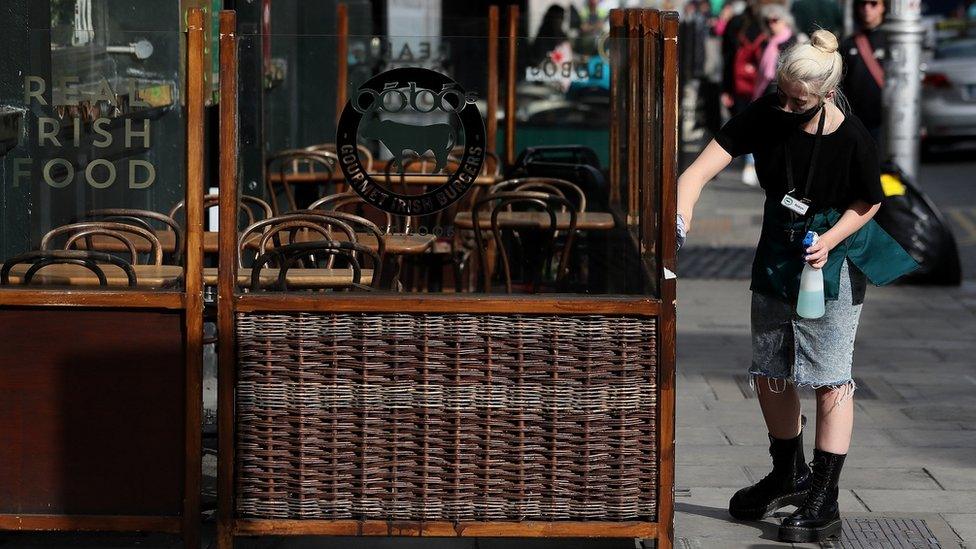Coronavirus: Draft guidelines for Irish indoor hospitality published
- Published
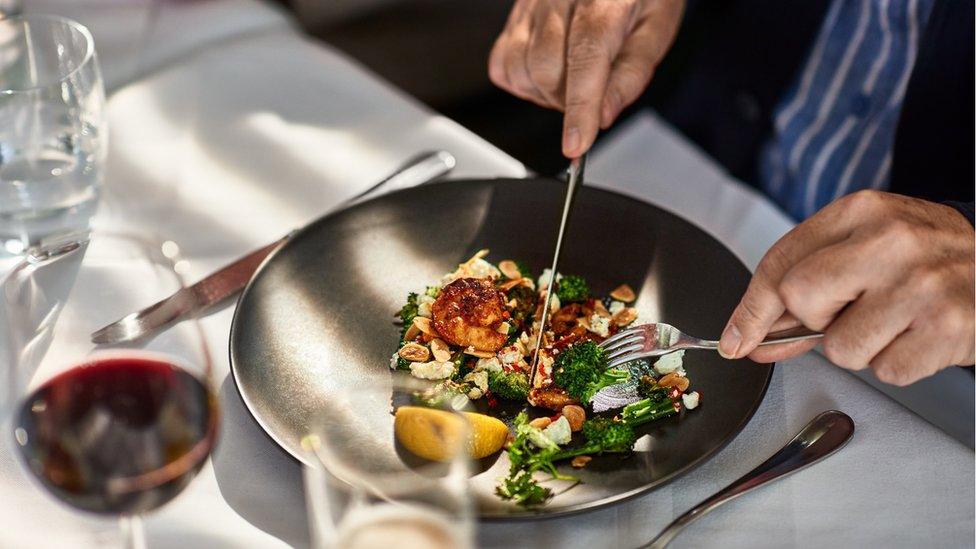
The Republic of Ireland's indoor hospitality sector has been closed since Christmas
Draft guidelines for the reopening of indoor hospitality in the Republic of Ireland have been published.
From Monday, 26 July, all customers will have to show proof of immunity from Covid-19 before they can be served food or drink in indoor venues.
Proof of immunity means being able to show a record of full vaccination, or recent recovery from the disease.
The guidelines, external were developed by the national tourism authority, Fáilte Ireland, and government officials.
They state that proof of immunity will include the EU Digital Covid Certificate or a vaccination card from Ireland's Health Service Executive (HSE).
"Before a customer is allowed to enter the seating area the proof of immunity for each adult must be checked to verify eligibility for entry to the seating area," the document states.
"These checks include verifying proof of immunity, combined with photo ID to ensure person is a 'permitted person'."
Children and young people under the age of 18 do not need to prove their immunity but must be accompanied by a parent or guardian who can show they have been vaccinated or have recovered.
The draft guidelines do not yet explain what forms of proof will be accepted from customers who were vaccinated outside the European Union, including residents from Northern Ireland.
With less than two days until the system comes into operation, the rules are still "very unclear", according to Raymond Aughey, chairman of the County Monaghan branch of the Vintners' Federation of Ireland.
He told BBC News NI he had "no clarity" on what to do when serving customers from Northern Ireland, Great Britain or the USA.
"It's definitely very close to the wire to be bringing in new regulations. They're giving operators very, very little notice," he said.
Mr Aughey, who also runs a bar and restaurant in Monaghan, said custom from Northern Ireland is a "very, very important" part of his business.
The Vintners' Federation of Ireland said that "how northern customers are dealt with is part of regulations which haven't been published yet but are due tomorrow".

The EU Digital Covid Certificate was introduced in several EU member states on 1 July
The indoor hospital vaccine pass system has been controversial, with many critics describing it as discriminatory against younger people who have not yet been vaccinated.
About a third of the Republic's adult population are not yet fully vaccinated and therefore they cannot enter indoor hospitality venues.
It is also onerous for businesses, who have been warned that they may be liable for fines or closure, external if they serve customers without proof of immunity.
'Teething problems'
Tánaiste (Irish deputy prime minister) Leo Varadkar accepted it was an additional burden on the hospitality sector, but said it was designed to be a temporary measure which would help get "lots of people back to work".
Mr Varadkar said: "I know that operating this new system will be inconvenient for business and could add to staff costs. It is, however, the only way we can reopen and stay open throughout this Delta wave.
"There will be teething problems and we will work with the industry to review and amend the regulations as needed and based on practical experience."
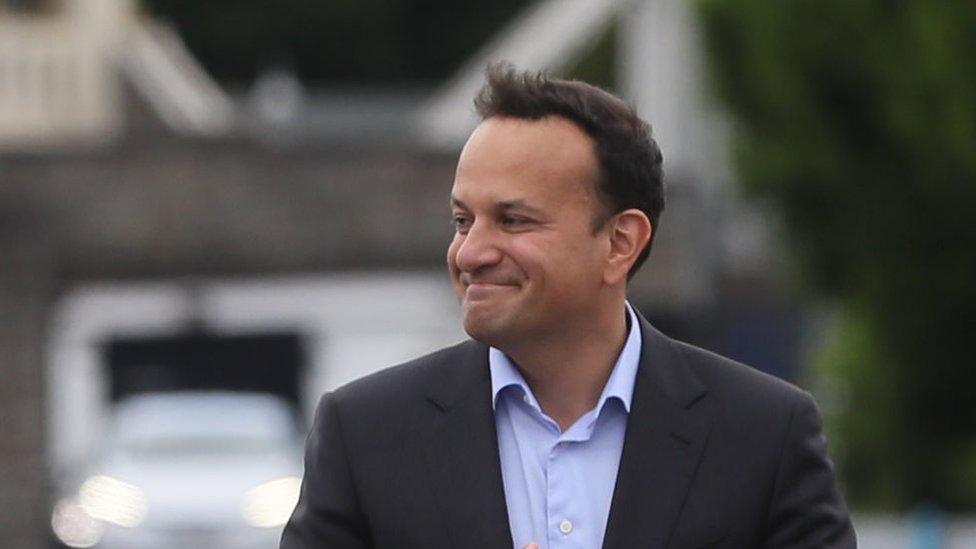
Leo Varadkar said if changes are needed, the new system can be amended after it begins to operate
Negotiations about the guidelines between the Irish government and hospitality groups went on late into Friday night.
Taoiseach Micheál Martin said the "broad outlines" of the guidance was already well known, but the exact legal parameters needed to be established.
The draft guidelines also state:
The name and contact details of each customer over 18 must be taken for contact tracing purposes
A maximum of six people aged 13 or over are permitted per table - the limit does not include accompanying children aged 12 or under
Face coverings must be worn by customers at all times other when seated
The bars and restaurants must operate via table service only
Time limits on how long customers can stay have been removed, but closing time remains 23:00 local time.
In addition to the immunity checks, Fáilte Ireland said hospitality businesses must continue to adhere to the usual Covid-19 infection prevention measures such as physical distancing, cleaning, maintaining good hand and respiratory hygiene and staying at home if feeling unwell.
"The public health advice is still that outdoors is safer than indoors," the tourism organisation added.
It said the "final regulations" are expected to be signed off by the government on Sunday and once that is done, the guidance document will be updated.
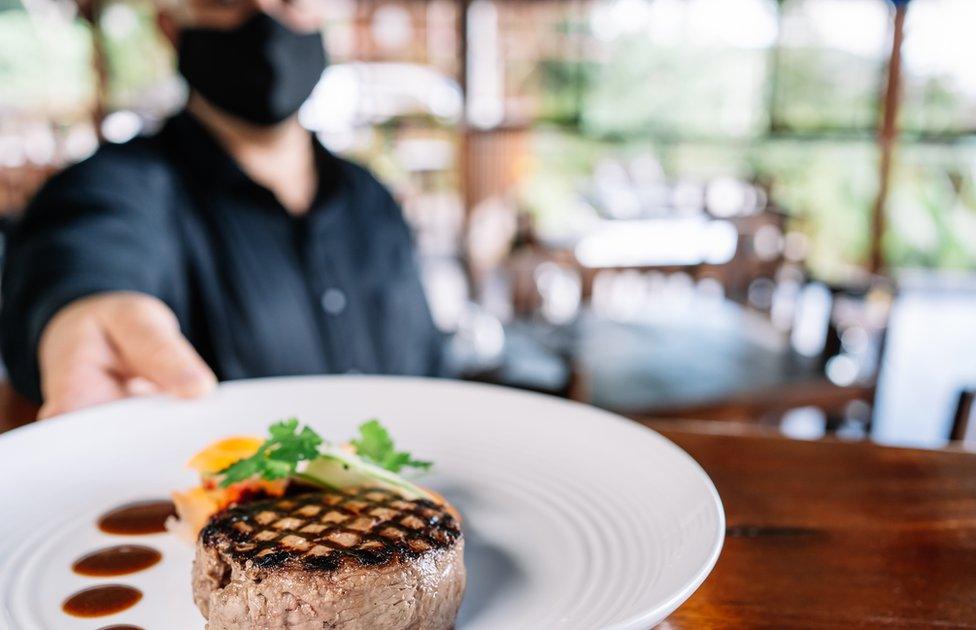
Staff must check customers' vaccine or immunity status and must refuse to serve those who do not have the correct documentation

The Republic's indoor hospitality sector has been closed throughout the first half of 2021 after Covid-19 infections soared during the Christmas holidays.
Outdoor hospitality reopened on 7 June, and indoor venues were due to reopen on 5 July, but this was delayed because of increasing cases of the Delta variant.
Instead, the government said it planned to limit indoor custom to people who could prove immunity and legislation to operate the new checks was signed into law this week.
It has previously been reported that those vaccinated in Northern Ireland, Great Britain and the United States will be permitted entry if they have verifiable proof of vaccination.
But as residents in Northern Ireland live outside the EU, they are not able to use the EU Digital Covid Certificate.
The Irish government website currently states: "For those from outside the EU who are fully vaccinated or recovered, the regulations that are being made under the Health (Amendment) (No.2) Act 2021 will provide details of the proofs of immunity that may be accepted by businesses."
In his statement, Mr Varadkar said: "The Digital Covid Certificate will be the primary evidence used when going into a pub, restaurant or café to access indoor hospitality. Other forms of evidence will be set out in the regulations."
- Published21 July 2021
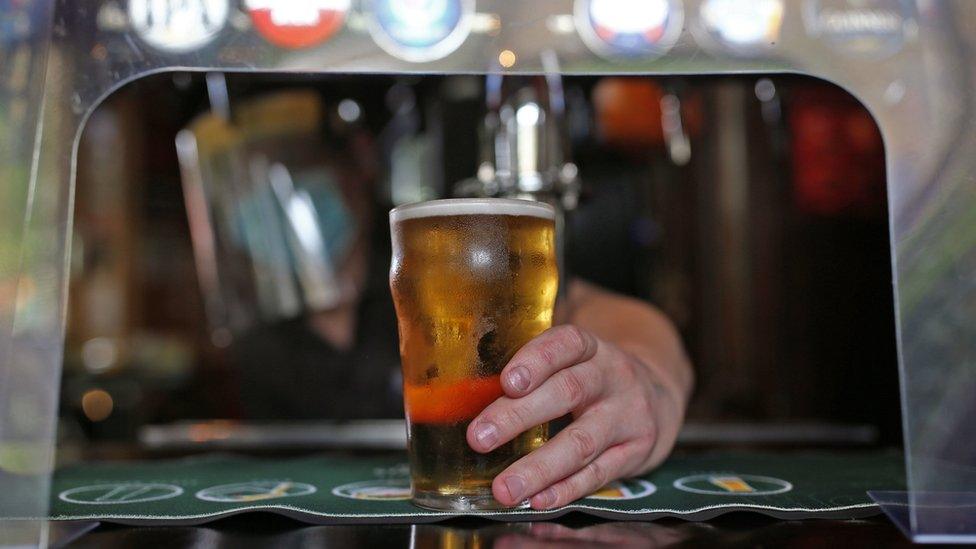
- Published12 July 2021
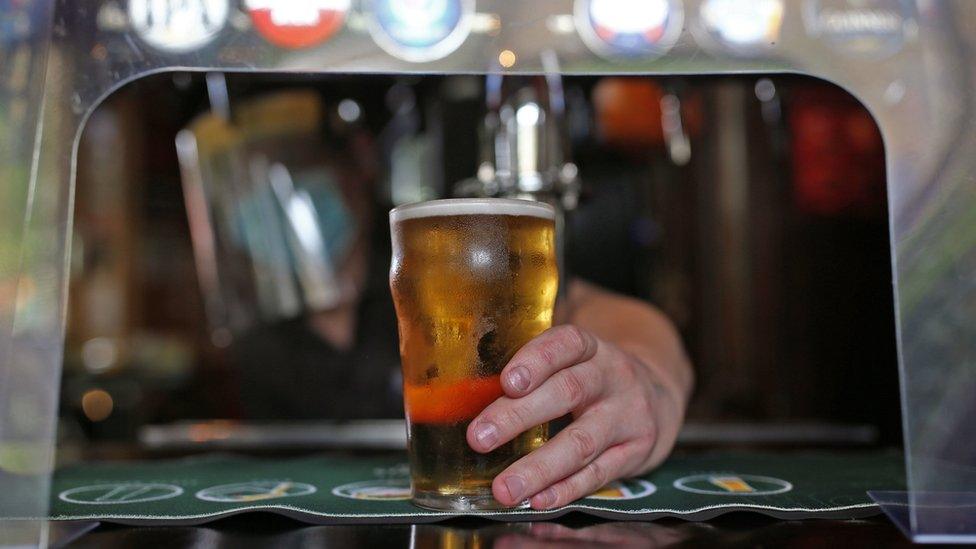
- Published29 June 2021
